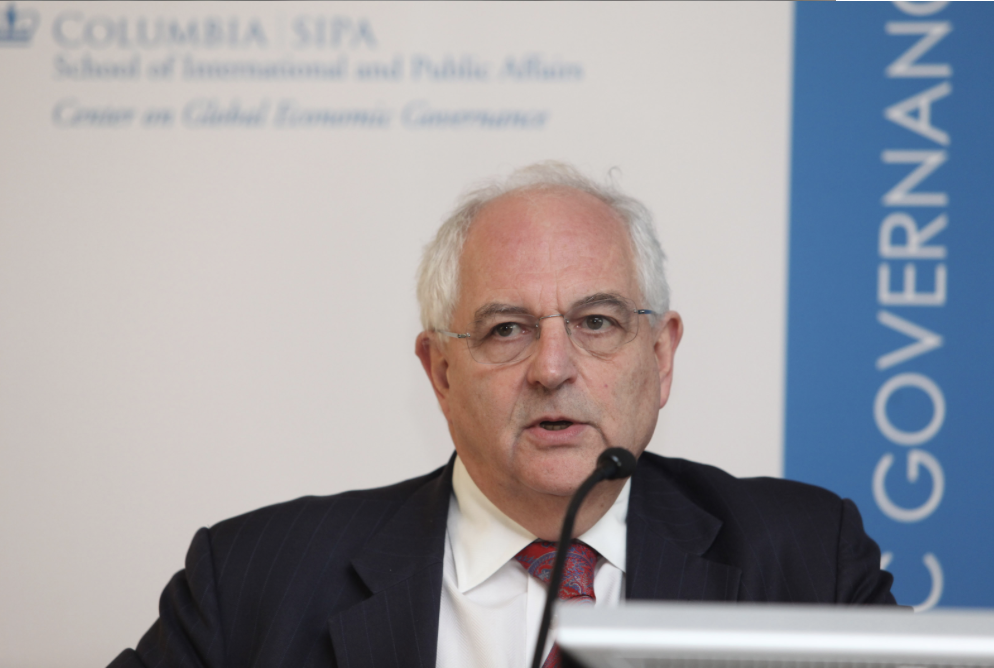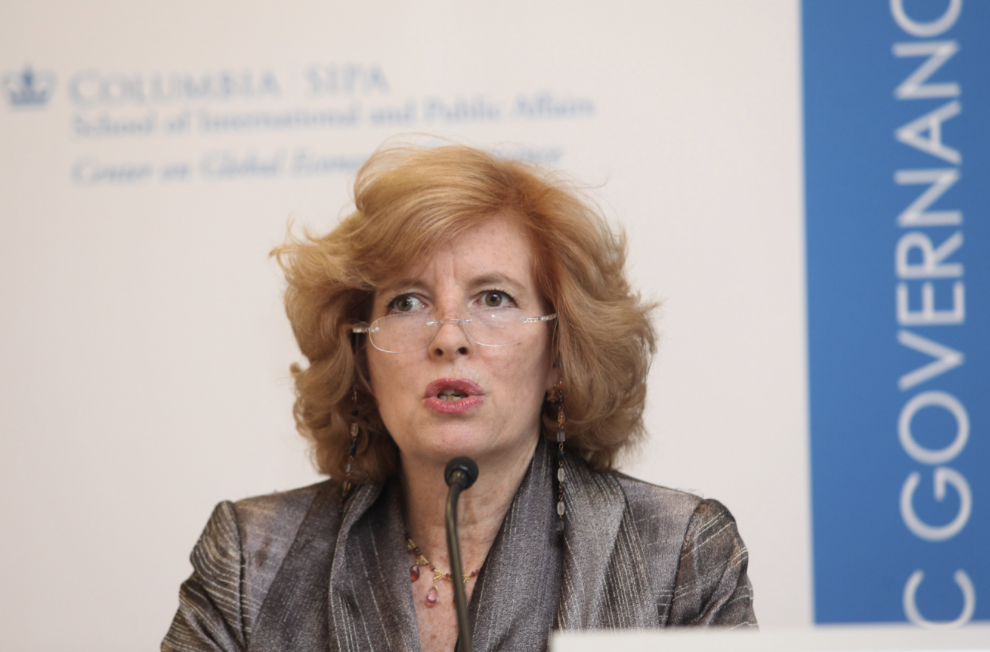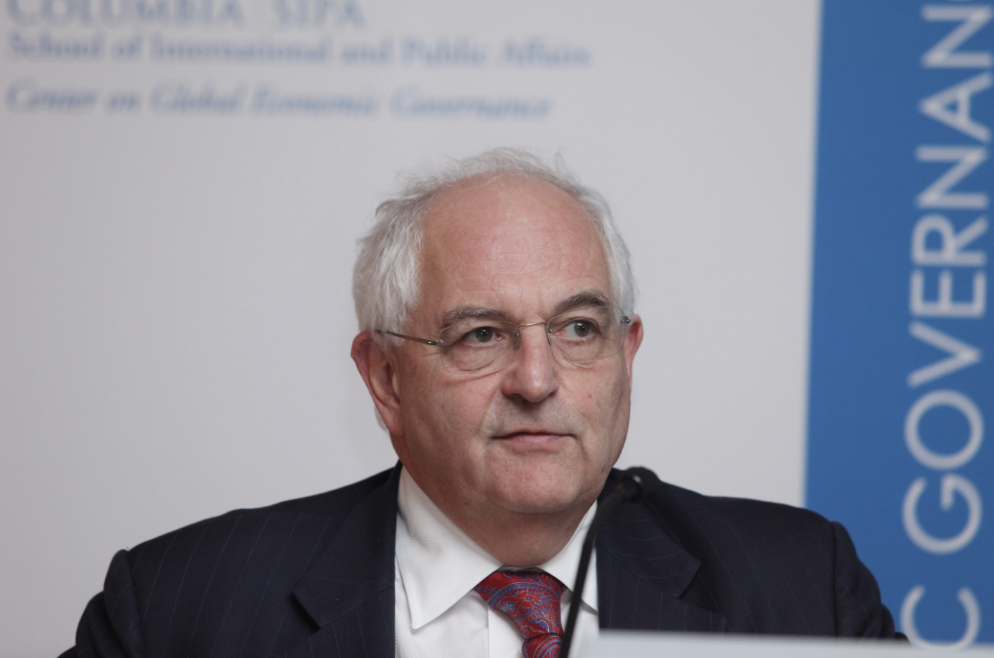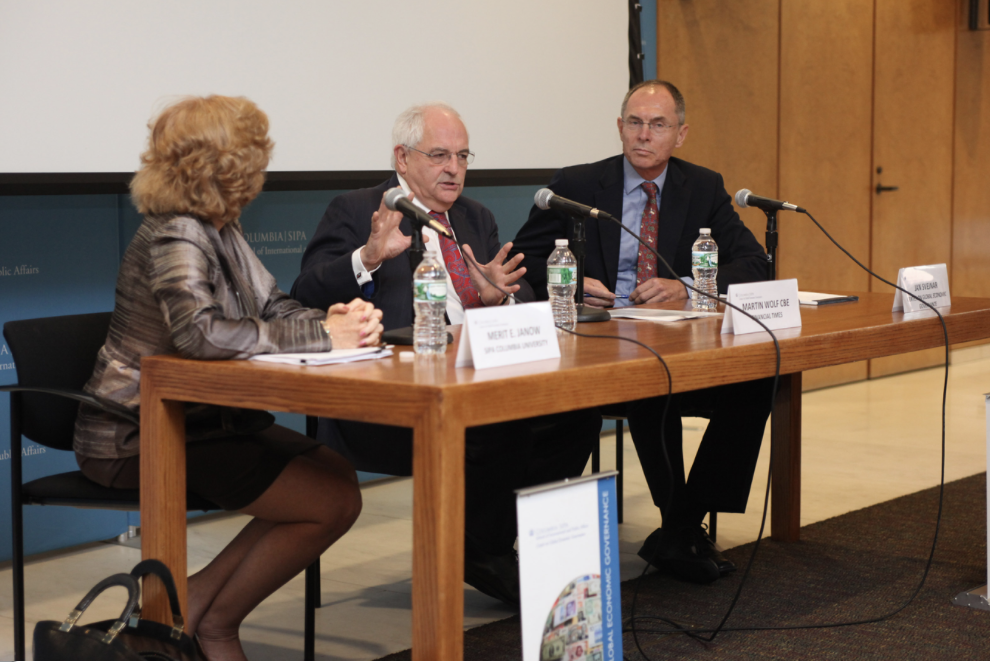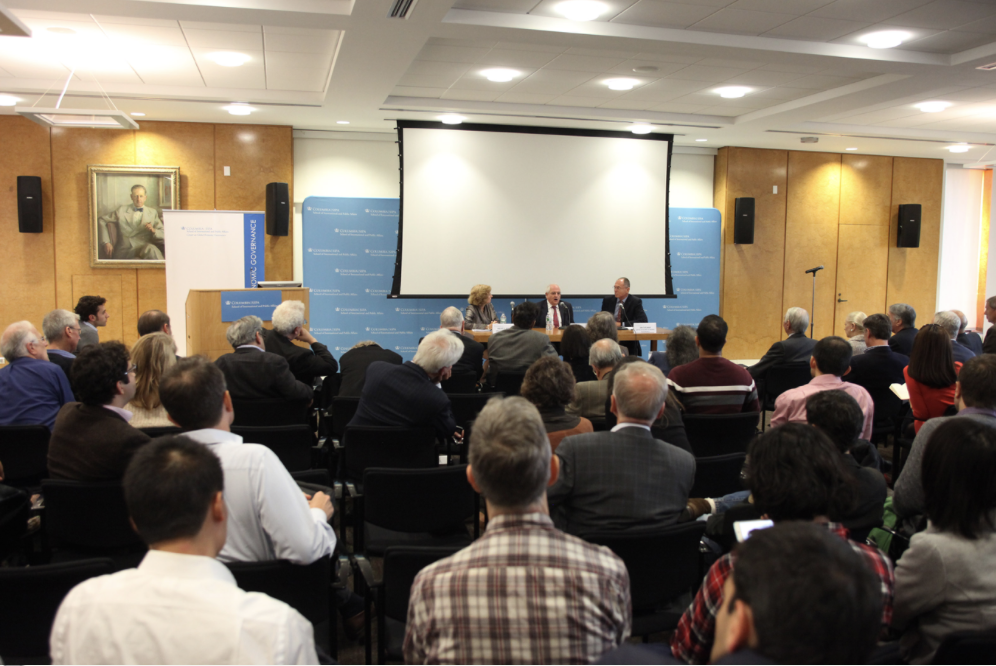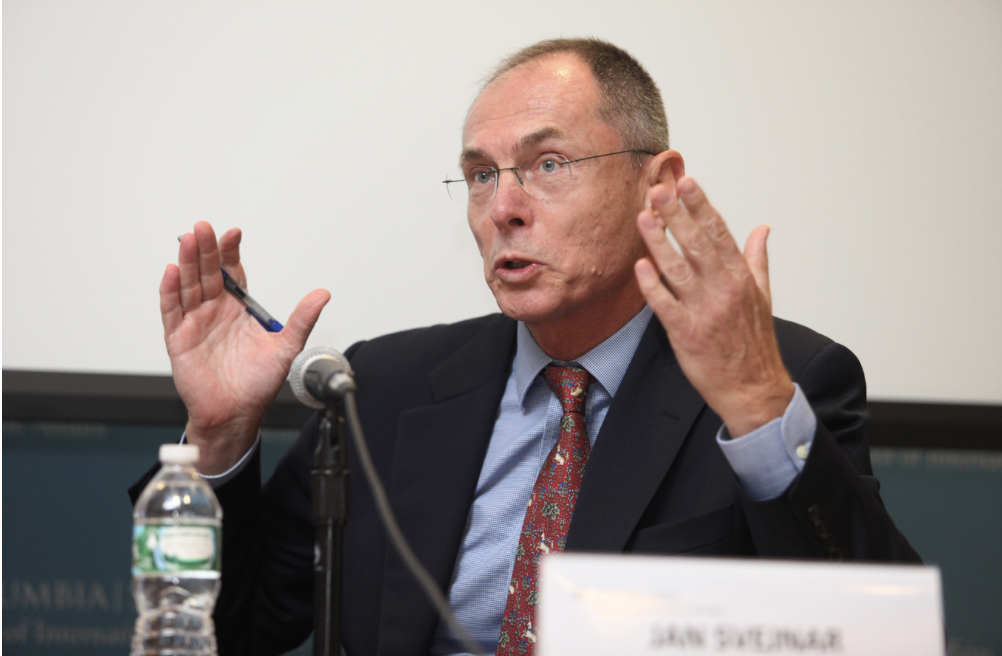An Investcorp Lecture in International Finance and Business
Moderated by Merit E. Janow, Dean, Columbia SIPA, and Jan Svejnar, Director, Center on Global Economic Governance, Columbia SIPA.
"A number of very different countries decided to share single money, but did not agree to share a fiscal and banking system,” said Martin Wolf in opening the lecture. Why the eurozone represents a bad marriage, why the happy honeymoon was a tragedy, why the risks were misunderstood, and why it is difficult to save this marriage, are the questions Wolf sought to address.
For the first decade, eurozone members had a honeymoon: “Countries with historically low credibility and high interest rates enjoyed low interest rates, surging capital inflows and booming economies. And countries with an historic attachment to export surpluses got improved competitiveness and apparently good investment opportunities for their surplus funds”, Wolf pointed out. According to him, the hope was that either there would be no crisis or that a more effective union could be agreed upon, once a crisis happened. However, what made everything seem so good was laying the ground for an acute crisis.
“After 2008, cross border private financial flows suffered a series of sudden stops. Countries embedded inside a currency union were more vulnerable to balance of payments financial crises than those with floating exchange rates and their own central banks”, Wolf explained. He then considered three scenarios for the eurozone: divorce, bad marriage, or good marriage. “Divorce remains a possibility. A good marriage is unlikely. A bad marriage is the most likely outcome” Wolf stated. The aim –according to him– would be to struggle through to a good marriage.
From Wolf’s perspective, the challenges to be met are: debt write-off, to clear the legacy costs of the poorly structured and managed currency union; financing, to prevent financial, fiscal, and economic collapse; adjustment, in terms of structural reforms and divergent inflation across the eurozone, with higher inflation and stronger final demand in core countries. And finally, banking, fiscal, and political reforms, which are needed to prevent a recurrence of the crisis.
Following Martin Wolf’s presentation, Jan Svejnar, Director of the Center on Global Economic Governance noted that “many young Europeans take the accomplishments for granted. It is not clear —in the maelstrom that would occur— that they would even be able to keep free trade, common market, free labor market, everything that is there, so it could get much worse.”
“Are all these adjustments and reforms that you mentioned going to be possible? If so, what is Europe going to look like? wondered the Economics professor Edmund Phelps, who was part of the audience. According to Wolf, Germany considers stability the highest policy goal, and is surrounded by peaceful and stable democracies. “This country has the single most important voice in this conglomeration, so it is in a position to export this culture. If everything goes well, the Eurozone will be a weaker version of Germany itself” he said. To conclude, Wolf commented: “In the end, a break-up is not going to happen. They are going to live with this. The question is: what sort of thing they are going to live with?”

